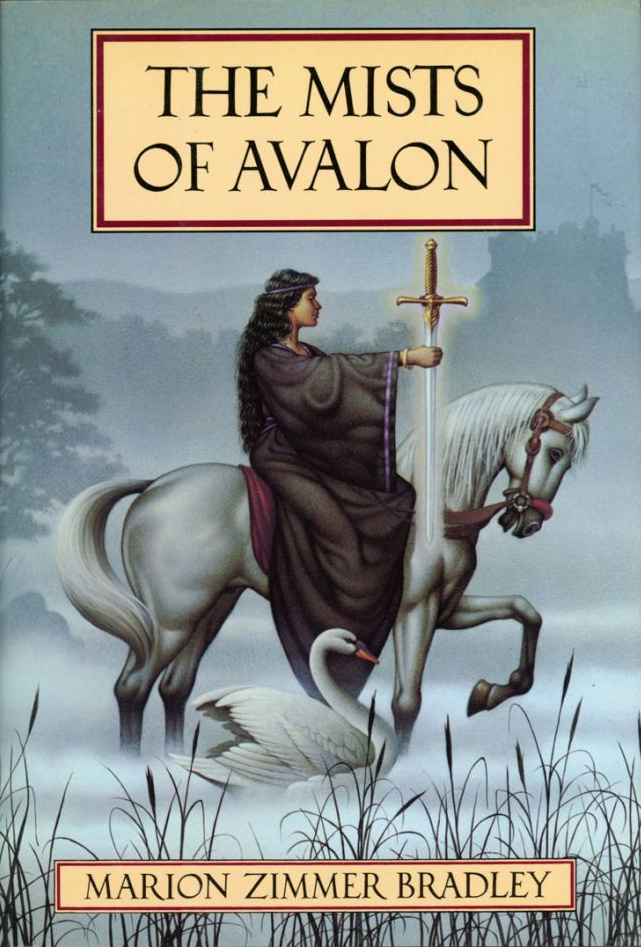IN THIS HUGE, enthralling novel, the legend of King Arthur is for the first time told through the lives, the visions, the perceptions of the women central to it. For the first time, the Arthurian world of Avalon and Camelot with all its passions and adventures — the world that, through the centuries, each generation has re-created in countless works of fiction, poetry, and drama — is revealed as it might have been experienced by its heroines: by Queen Guinevere, Arthur's wife (here called Gwenhwyfar); by Igraine, his mother; by Viviane, the majestic Lady of the Lake, High Priestess of Avalon; and, most important, by Arthur's sister, Morgan, who has come down to us as Morgan of the Faeries, as Morgan le Fay — as sorceress, as witch — and who in this epic retelling of the story plays a crucial role both in Arthur's crowning and destruction. Above all it is a story of profound conflict between Christianity and the old religion of Avalon.
Guinevere is the Christian — first seen as an exquisite white and gold child, weeping, lost in the mists of Avalon. Dutifully married to Arthur, she is deeply in love with Lancelot, and fails with the direst of consequences to bear her husband a son. It is her uncompromising piety that draws Arthur, and all of Britain, under the powerful sway of the Christian priests, despite Arthur's sacred oath to uphold the old religion of Avalon.
Morgan is Guinevere's foil; ardent, intense in her loves and loyalties. A priestess of Avalon and possessed of the Sight, she is a tormented woman, torn by unrequited love for Lancelot and by failures as mother, sister, and wife. Consecrated Maiden of the Great Marriage, which binds the King to his Kingdom, it is her tragic and heroic fate to bring about the downfall of her brother, lover, foe — Arthur, who betrays Avalon and their past for a Christian future.
It is Morgan's vision that most powerfully colors this retelling. It is her voice, speaking for the ancient ways and for the Earth itself, that we hear at climactic moments as the great Arthurian drama in all its richness unfolds —
from Igraine's marriage; to Uther and the birth of Arthur to the mysterious intervention of Viviane, to the glories and treacheries of Arthur's kingship, the heroic deeds of Gawaine and his fellow Companions of the Round Table, the wisdom of the Merlin, the fatal ambition of Mordred, the slow but irreversible decline of Avalon.
As we follow her progress and Guinevere's — and that of the immense cast of characters who surround them — from their childhoods to the fulfillments of their destinies, we follow as well the destiny of Britain. With all the magic conviction and resonance of ballad and ancient lore, The Mists of Avalon evokes a Britain both real and legendary - from its desperate wars for survival against the Saxon invader to the glory of Camelot and a world at peace, to the tragedies that accompany the death of Arthur and the destruction of the mythic radiance he embodied.
Igraine, Viviane, Guinevere, Morgan. It is the strength and appeal of this book that their lives and feelings reveal the legend of Arthur as if it were new, and, at the same time, allow us to read it with spontaneous recognition and sympathy. In The Mists of Avalon, Marion Zimmer Bradley gives us at once a superb rendering of pure story, a re-creation of legend, and a brilliant addition to the literature of Arthur.


